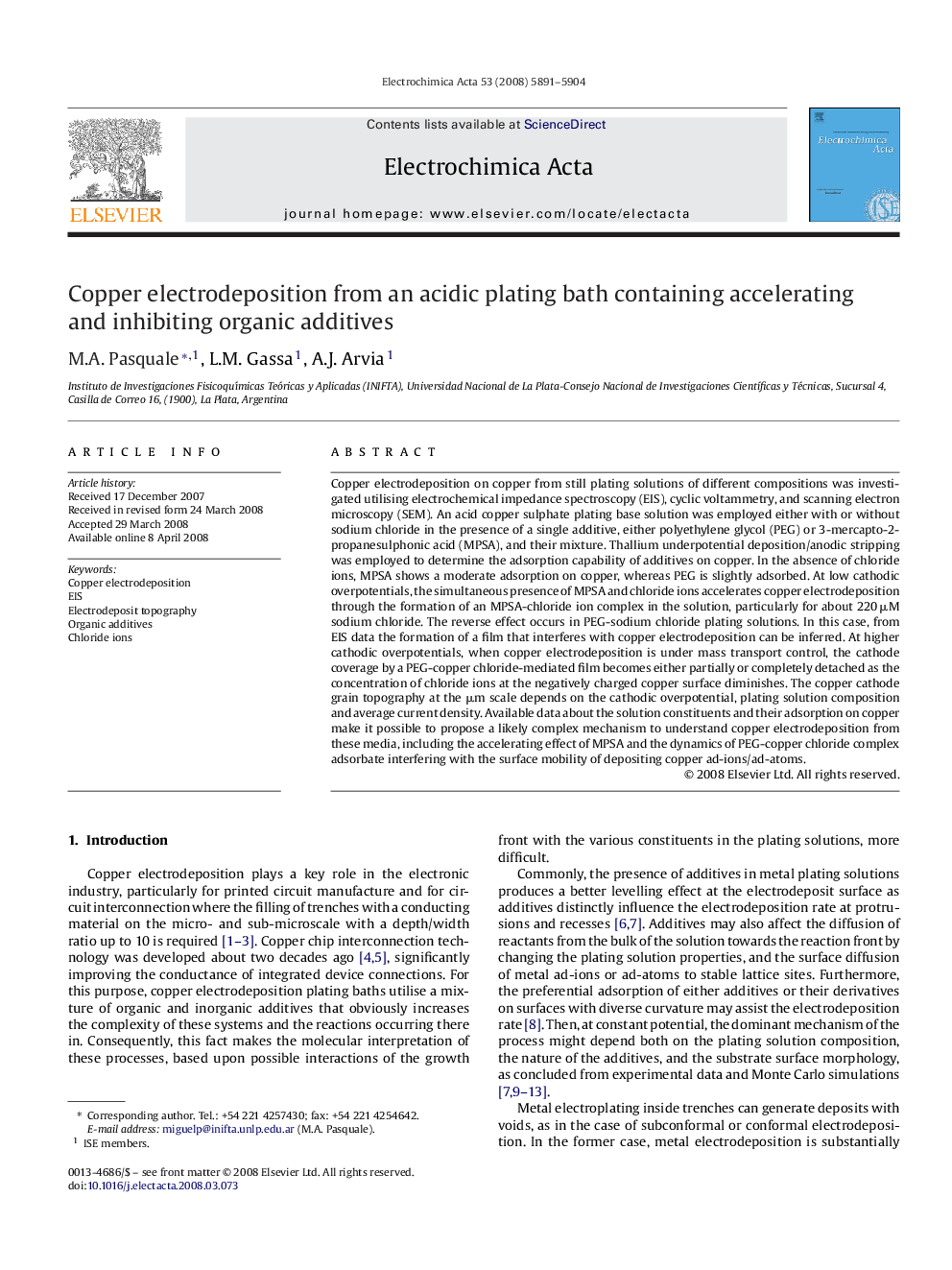| Article ID | Journal | Published Year | Pages | File Type |
|---|---|---|---|---|
| 192038 | Electrochimica Acta | 2008 | 14 Pages |
Copper electrodeposition on copper from still plating solutions of different compositions was investigated utilising electrochemical impedance spectroscopy (EIS), cyclic voltammetry, and scanning electron microscopy (SEM). An acid copper sulphate plating base solution was employed either with or without sodium chloride in the presence of a single additive, either polyethylene glycol (PEG) or 3-mercapto-2-propanesulphonic acid (MPSA), and their mixture. Thallium underpotential deposition/anodic stripping was employed to determine the adsorption capability of additives on copper. In the absence of chloride ions, MPSA shows a moderate adsorption on copper, whereas PEG is slightly adsorbed. At low cathodic overpotentials, the simultaneous presence of MPSA and chloride ions accelerates copper electrodeposition through the formation of an MPSA-chloride ion complex in the solution, particularly for about 220 μM sodium chloride. The reverse effect occurs in PEG-sodium chloride plating solutions. In this case, from EIS data the formation of a film that interferes with copper electrodeposition can be inferred. At higher cathodic overpotentials, when copper electrodeposition is under mass transport control, the cathode coverage by a PEG-copper chloride-mediated film becomes either partially or completely detached as the concentration of chloride ions at the negatively charged copper surface diminishes. The copper cathode grain topography at the μm scale depends on the cathodic overpotential, plating solution composition and average current density. Available data about the solution constituents and their adsorption on copper make it possible to propose a likely complex mechanism to understand copper electrodeposition from these media, including the accelerating effect of MPSA and the dynamics of PEG-copper chloride complex adsorbate interfering with the surface mobility of depositing copper ad-ions/ad-atoms.
